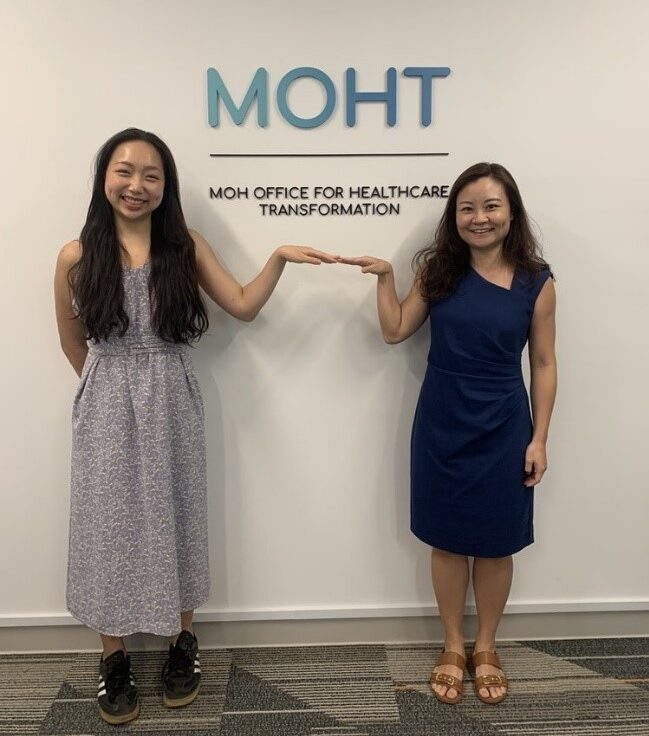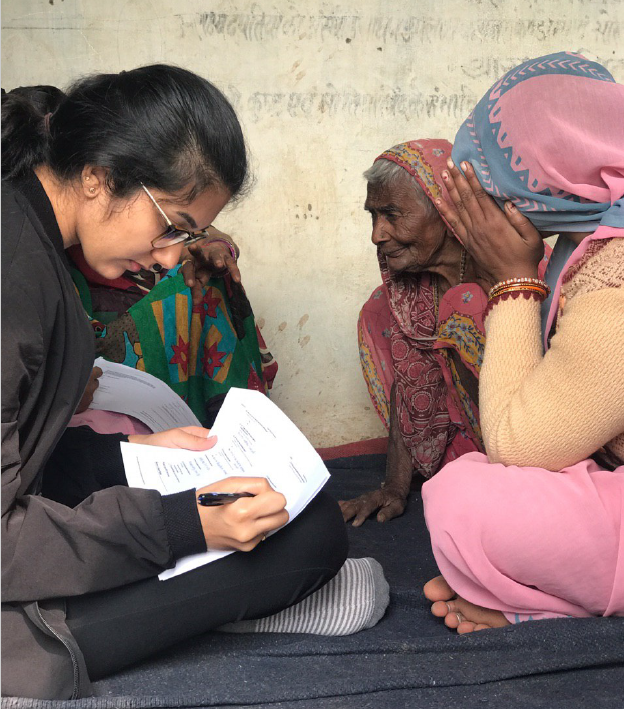Class of 2024: Medical doctors of tomorrow flying the Medicine flag high
Published: 14 Jul 2024
Sim Tao Ming – The Potential Clinician-Scientist
Class of 2024; House Officer, Internal Medicine, National University Hospital

Tao Ming (far right) with his peers in medical school. Photo Credits: Sim Tao Ming
From a regular name on the Dean’s List for three consecutive years to receiving school awards, Tao Ming has accumulated a glowing list of achievements and accolades under his belt since his medical school days and is eager to do more.
An avid researcher, Tao Ming has seen his work published in many international peer-reviewed journals such as Vaccines, International Journal of Molecular Sciences and Frontiers. His notable research achievements include detailing novel strategies to treat neurodegenerative diseases such as Alzheimer’s disease and Parkinson’s disease and a retrospective cohort study of local patients with Systemic Lupus Erythematosus and their risk of disease flare following COVID-19 vaccination.
Tao Ming’s interest in research only grew when he first started learning about the human anatomy through dissecting cadavers, or Silent Mentors as they are fondly known. These Silent Mentors, while they were living, made a pledge to donate their bodies to the study of medical science. Together with like-minded friends and the Department of Anatomy at the Yong Loo Lin School of Medicine, they conceptualised The Last Bus, a book that documents their appreciation and gratitude for all the Silent Mentors and their family members for their contributions to medical research. The Last Bus ultimately aims to raise awareness about the important issue of body and organ donation.
“I have my tutors and Silent Mentors to thank as they have helped spark my intellectual curiosity in medicine, I hope to continue this legacy and contribute positively to the field of medicine both as a medical doctor and an academic.”
The hard copy of The Last Bus will be available at the end of 2024, and will be presented to the families of these Silent Mentors during the book launch.
Tricia Tan – The Mental Health Advocate
Class of 2024; House Officer, Internal Medicine, Sengkang General Hospital

(From left) Tricia with Janice, founder of mindline.sg, on the last day of her gap year at the Ministry of Health, Office for Healthcare Transformation. Photo Credits: Tricia Tan
Tricia developed a deeper understanding of mental health when she first grappled with the complexity of her feelings regarding her mother’s cancer diagnosis. While seeking help to deal with her deteriorating mental health, Tricia encountered an overwhelming barrage of information about mental health. By the end of her search, she was left exhausted from an overload of information and more confused than when she first started her search.
When asked about what sparked her to delve even deeper into this area, Tricia said, “I noticed that there was so much potential in the mental health space and the need to do more, not just locally but globally.” The aspiration and desire for every single person, regardless of who they are, to have access to quality mental health services has become a deep-seated conviction in Tricia as she enters the workforce as a young doctor.
Tricia credits poetry-writing as an indispensable avenue that got her through the darkest periods in her life. This practice of laying her feelings, thoughts and experiences down on paper eventually gave rise to Patient History – a poetry collection of medical experiences — which she wrote during her medical school days. Now available in both paperback and e-book versions, Patient History is inspired by the many patients whom Tricia met during her medical rotations, and her own caregiving journey when she took care of her mother after she was diagnosed with cancer.
“Poetry really started as a form of therapy for me. Sometimes, we feel pressured to perform at 200%. Writing poetry forces me to slow down and it teaches me to be patient with myself and process my feelings one step at a time, just allowing myself to process.”
Seeing the benefits that poetry-writing has on mental health, Tricia eventually aims to conduct workshops to help people learn how to write poetry, as a way to come to terms with and process their emotions for better mental health.
Aiswarya Panda – The Community Care Champion
Class of 2024; House Officer, General Surgery, National University Hospital

Aiswarya filling up a health questionnaire for a local patient during a Project i2Eye trip to Chitrakoot, India. Photo Credits: Aiswarya Panda
“Dance is a way for one to express themselves, through expressions, movements and gestures that are able to convey an entire story without uttering a single word.” The storytelling aspect of Odissi fascinated Aiswarya when she was first exposed to this classical style of dance, which gave her an avenue to express herself and her emotions as well as share her culture widely. Odissi is a lyrical classical India dance form, which incorporates different footwork, various body bends and stances.
When Aiswarya entered medical school, it became harder to pursue Odissi alongside the demands of medical school curriculum, especially during examination periods. “To survive medical school, there needs to be a way to unwind and destress and Odissi classes did that for me. By focusing my attention on controlling my body to do justice to the choreography during dance practice, I was able to keep my medical school stressors aside and create a much-needed break for myself.”
Besides being an avid Odissi dancer, Aiswarya also served as Secretary-Treasurer for Project i2Eye, a student-led overseas community involvement project focused on improving healthcare in Sambalpur, India. Her team worked closely with local volunteers to conduct health camps to increase health-seeking behaviours through basic health screenings and education. This experience had a profound impact on Aiswarya and taught her about the need to rely on the expertise of local personnel to navigate the existing difficulties of healthcare service provision in a foreign country. “Learning a culture and lifestyle from locals is key to making sustainable impact in any community – that’s something I learned and have appreciated the most from conducting health camps overseas. I always found it fascinating how sometimes an idea that sounds theoretically brilliant might not be the most feasible in execution – something that a local would have a clearer understanding about. Taking on a leadership role in Project i2Eye gave me the chance to interact and work closely with the local volunteers allowing me to appreciate the diversity in perspectives.”



